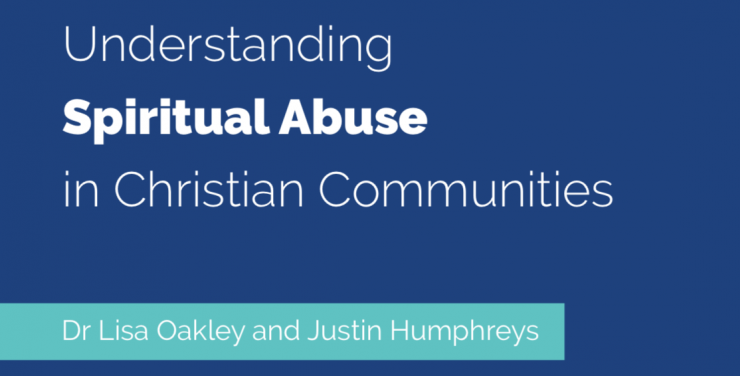Dangerous Research on Spiritual Abuse

The Churches’ Child Protection Advisory Service is the only independent Christian charity in the UK which provides services to churches on all matters relating to the safeguarding of children and vulnerable adults. It has a good track record and is widely trusted for its advice and support.
However, a recent survey commissioned by CCPAS gives cause for concern. The survey states that two-thirds of the respondents said that they had been “spiritually abused”. Some of the characteristics of such abuse were described as “coercion and control, manipulation and pressuring of individuals, control through the misuse of religious texts and scripture and providing a ‘divine’ rationale for behaviour”.
We want to stand against all forms of bullying, manipulation and coercion in the church, especially directed at the young and the vulnerable. As a local church pastor, I know myself it is possible for church leaders to abuse their power and influence, especially in relatively small, close-knit church communities. Rather than our position, we should be using the Bible as our authority, applying biblical principles and letting the Holy Spirit do the work of convicting and persuading. Like the apostle Paul, we do not want to manipulate people by “eloquence or human wisdom” or “peddle the word of God for profit” (1 Corinthians 2:1, 17).
However, we do want to speak the gospel passionately and persuasively. We don’t want to just give boring lectures, or share our testimony as if it was the shipping forecast. And, following the pattern of the New Testament, we do want to call people to respond.
In terms of the research itself, the term “spiritual abuse” is poorly defined and therefore subject to endless interpretation. For some, it can be used as a description of the orthodox Christianity that they regard as inherently abusive. It therefore gives opponents of the Christian faith ammunition to use against us as we go about normal and legitimate Christian work.
Some might want to ban us from teaching our children that they are not born innocent and thus “free to write their own story”. It might also be construed as “spiritual abuse” to give an evangelistic talk, urging people to turn away from their sinful lifestyle and to repent and believe the gospel.
Church discipline, even if applied with great patience, sensitivity, love and compassion – and with a clear desire for restoration – might easily be labelled by some as “abusive”. Some who have been lovingly disciplined may wish to justify themselves as being victims of “abusive” church practices, when it may have simply been the proper application of biblical principles, as set out by Jesus and the apostles.
As church leaders, we should be willing to acknowledge those occasions when our failure to have proper accountability in place has allowed genuine abuse to happen. Some well-defined research and suggestions on good practice would therefore be very helpful. But this research is more in danger of provoking our opponents than of seriously challenging and supporting the church.
Graham Nicholls, Affinity Director
Stay connected with our monthly update
Sign up to receive the latest news from Affinity and our members, delivered straight to your inbox once a month.



